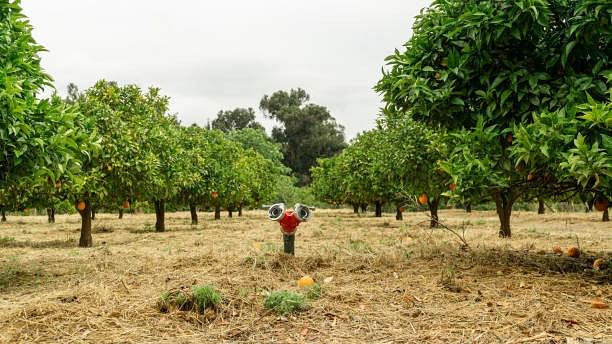
Image for representation.
Credit: iStock Photo
The launch of 109 high-yielding, climate-resilient and bio-fortified seed varieties by Prime Minister Narendra Modi was an important initiative to counter the impact of climate change on agriculture. Agriculture is considered to have contributed much to climate change but it will also suffer badly from changes in weather and climate patterns.
That is because all agricultural practices have developed in consonance with climate, and the nature and output of crops in a particular area are dependent on it. Changes in climate are likely to reduce crop areas and productivity and may even make some crops unviable unless steps are taken to meet the threat.
Development of climate-resilient seeds is part of the front-line defence mechanisms to be employed as a mitigation measure. All the present seeds have, in fact, been developed by farmers through testing and experimentation over generations. But the luxury of time is not available now because climate change is already happening.
The seed varieties developed by the Indian Council of Agricultural Research (ICAR) and state agriculture universities cover 61 crops, including 34 field crops and 27 horticultural varieties. They include cereals, millets, pulses, oilseeds, fruits, vegetables and commercial crops. One of them is a rice variety suitable for coastal saline areas.
The government has plans to bring a total of 25 per cent kharif paddy area under climate resilient seeds. It has claimed that coverage of climate-resilient seeds in wheat cultivation has made progress but paddy is yet to pick up. It has also claimed that the increase in wheat production in 2023-24 is because of the use of climate resilient seeds. There are studies which indicate that climate change could reduce the country’s rice yields by 3-5 per cent by 2030 under a medium carbon emissions scenario, and by up to 31.3 per cent in case of high emissions in the rest of this decade.
Attention should be given to crop diversification, too. Crops that need more water -- like paddy -- need to be discouraged and more water-efficient and economical crops should be encouraged. Crop diversification is considered to be an important step that will help to counter climate change. The government has launched many programmes, including water conservation and forest protection plans, and promoted organic farming practices.
But India is lagging behind other countries in research and development of methods to help agriculture cope with climate change. The geographical diversity, crop varieties and differences in climate patterns in the country make it imperative that more research is done on climate and agriculture in the country. India also has much more at stake than other countries because of its large population and the high dependence of a large part of that population on agriculture.